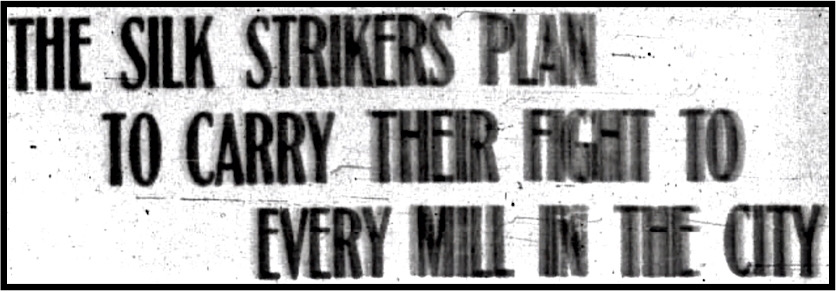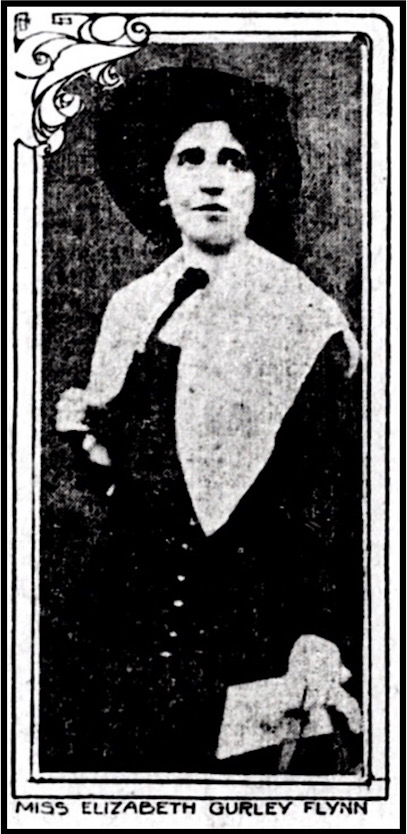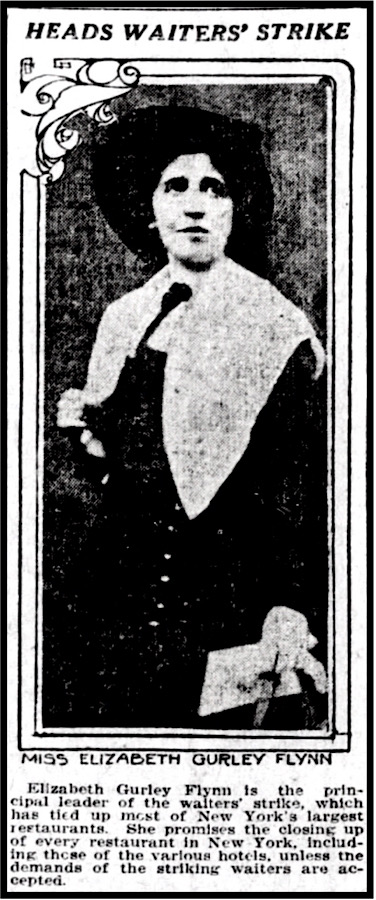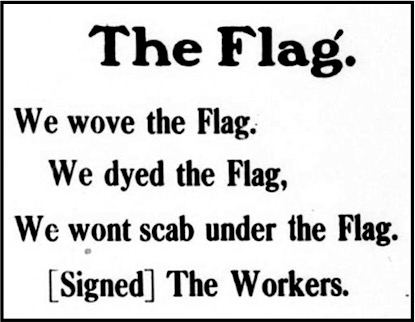 —————
—————
Hellraisers Journal – Tuesday March 18, 1913
Paterson, New Jersey – Silk Strikers Will Not Scab Under The Flag
From the Paterson Evening News of March 17, 1913:
The patriotic demonstration of the manufacturers of Paterson [for their self-declared “Flag Day”] proved rather disappointing in its result this morning, for when the whistles blew at all of the mills represented in the manufacturers’ association, the expected rush of workers to get back to their loom did not occur.
Saturday afternoon, a huge flag was stretched across Market street, near Paterson, with the legend under it: “We Live Under This Flag, We Work Under This Flag and We Will Defend This Flag.”
The Socialist retorted by stretching a flag to the wind in front of their headquarters bearing the words: “We Won’t Scab Under This Flag.” and the I.W. W. distributed a number of small buttonhole flags to the workers bearing the same words and instructed the pickets at the mill to show the flag to any of the workers who wanted to go back.
[…..]
Display of American Flag Not Very General.
While nearly all the mills hung out the American flag, the appeal to patriotism did not meet with very much success, as far as the strikers returning to work was concerned. The request that merchants display the National colors, disclosed the fact that only two American flags were hung to the breeze along Market street. At the Socialist headquarters on Main street an American flag has been hung and beneath a sign bearing this inscription was hung: “Dont Scab Under This Flag.” This is the slogan that has been adopted by the strikers in answer to the call of the manufacturers.
[…..]
Efforts of Strikers to Prevent Break In Strike
is Successful.Many who have been following the strike carefully believed that a break would occur this morning in many of the mills of all those out on strike. A committee meeting of the ribbon weavers held in Helvetia Hall, yesterday afternoon, indicated the fact that this branch of the industry are standing more firm than ever before. Practically every delegate who was present stated that the strikers had expressed the sentiment that unless the manufacturers granted them some demands they would not return to work. This is practically the same feeling that exists among the greater majority of the broad silk weaver and dyers. They are all determined to remain firm in their stand and will not return to work until the manufacturers have made some counter compromise.
[…..]
Haywood Arrives at Turn Hall.
[As Miss Flynn was addressing the strikers, meeting] Haywood arrived from New York city. He was met at the depot by Organizer Koettgen. There was no police escort this time to take him to police headquarters, so he continue to Turn Hall without interference. He listened attentively to Miss Flyn who continued her remarks […..and] followed with an address…which was well received and which will be printed in The News tomorrow.
[…..]
[Emphasis added.]

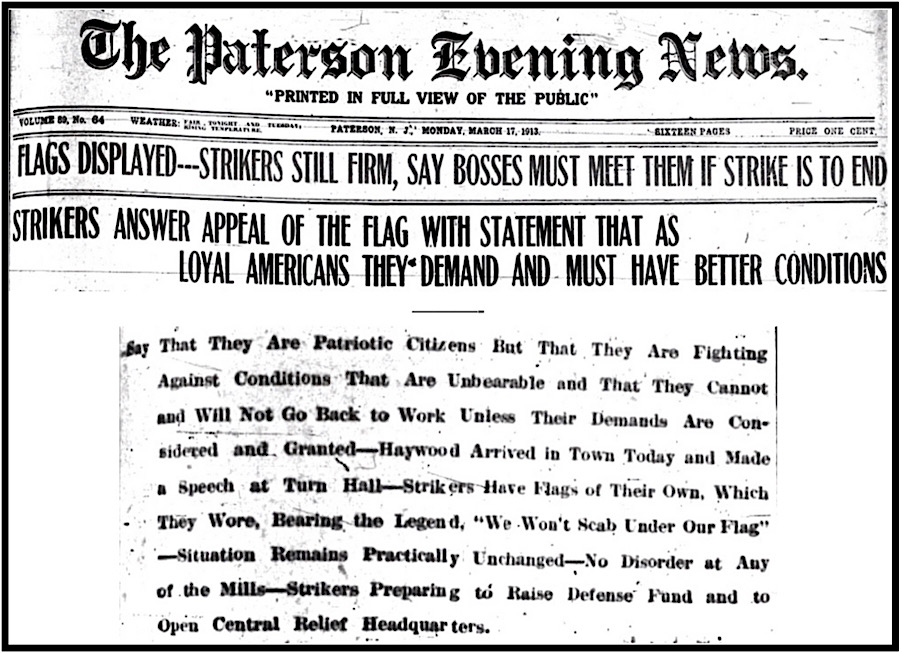
 —————
—————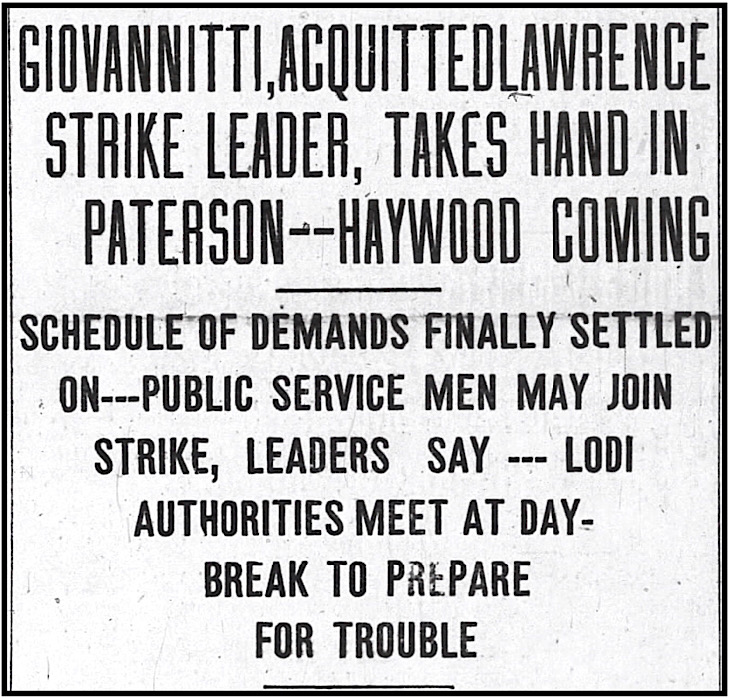
 —————
—————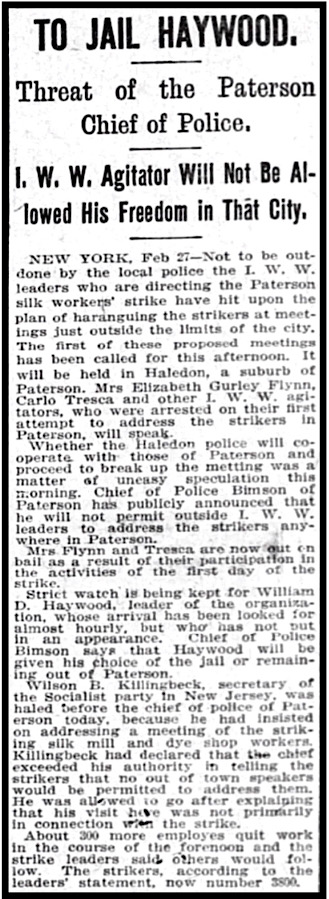
 —————
—————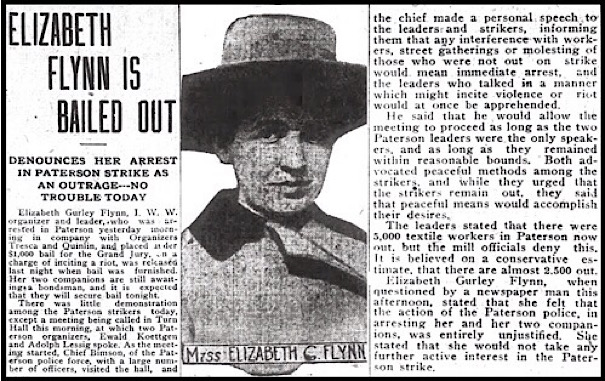
 —————
—————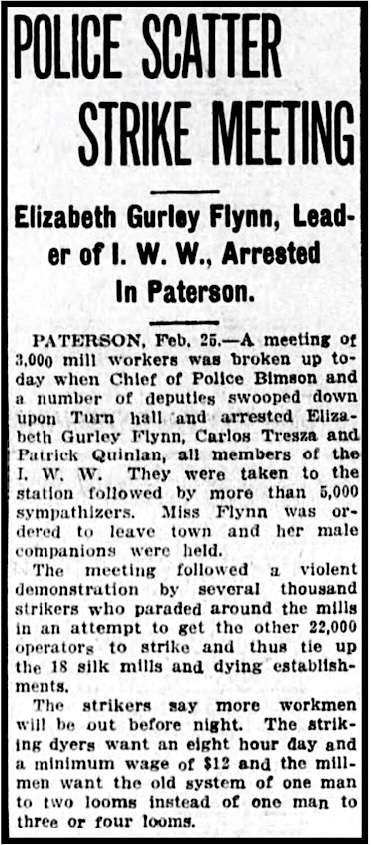
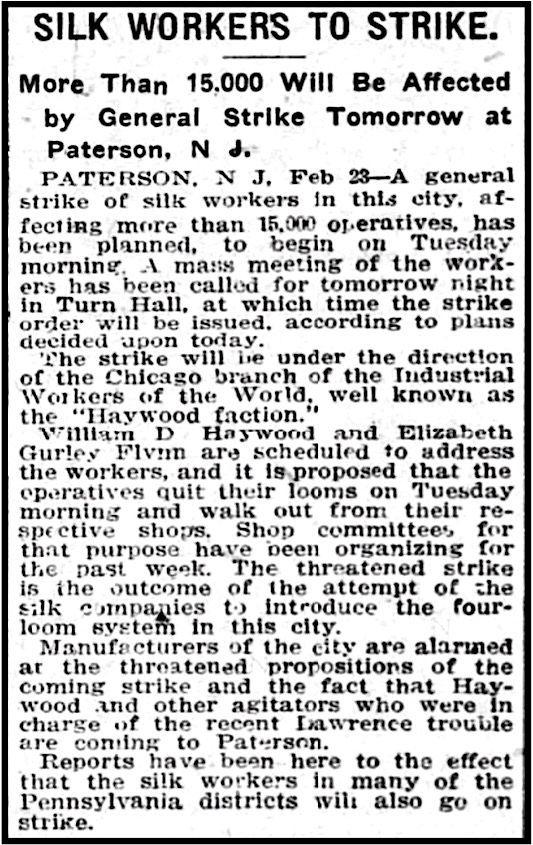
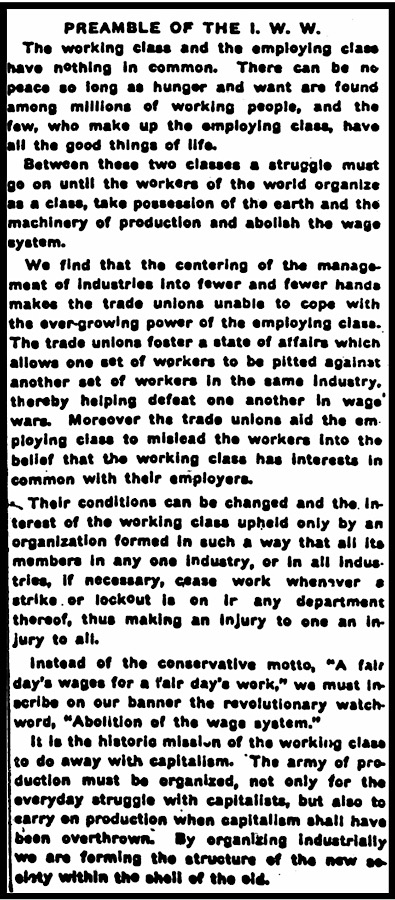

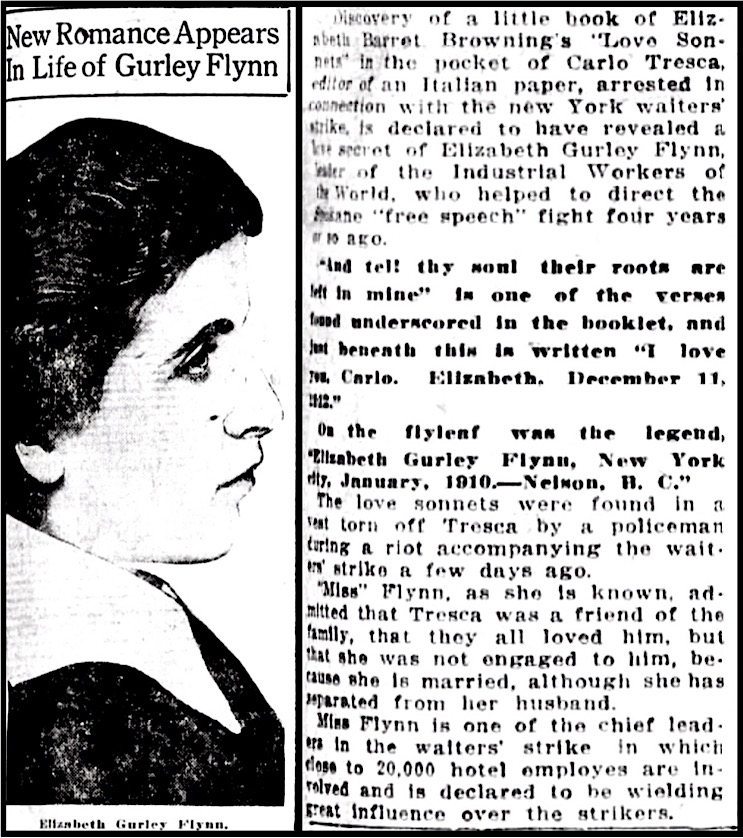
 —————
—————